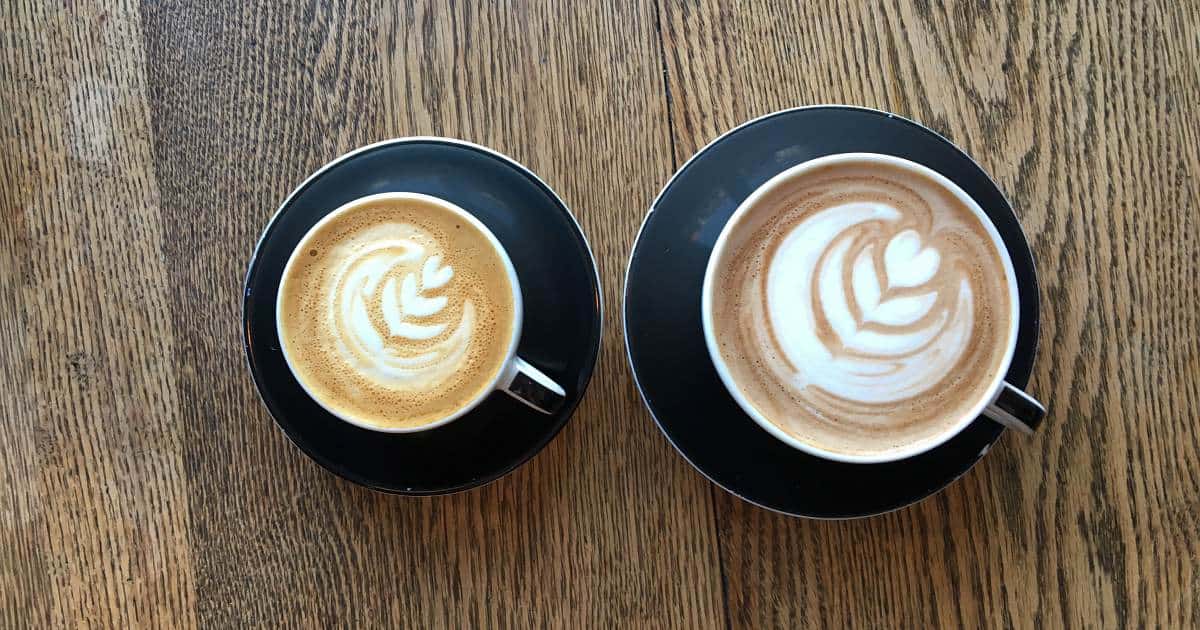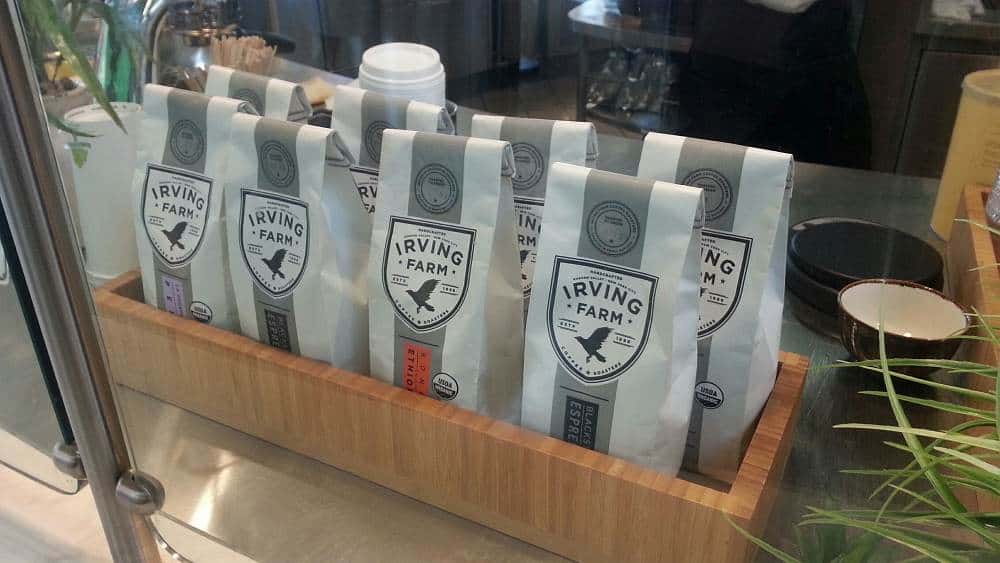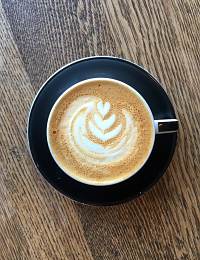
A few of the writers for La Papillote had the pleasure of getting a personal tour of the Irving Farm roasting warehouse in Millerton, NY. One of Irving Farms’ sales representatives and a former CIA grad, Jake Griffin, was ecstatic to give us the tour. One of his favorite quotes is, “Coffee is a seed of a fruit that grows on a tree.” And to many peoples’ surprise, the fruit is a cherry. What’s great about coffee is that it expresses its own personality; bitter, sweet, dark, light, and sometimes mysterious—the “I don’t know what I’m tasting factor.” Some say that coffee is more complex than wine. The process of wine tasting is similar to that of sampling coffee; sniff, swoosh, repeat. However, this may be an argument saved for another time.
Coffee beans come from many parts of the world, but are famously found in Asia and South America, but always grow in two forms, robusta and arabica. Irving Farms started brewing coffee in 1996. The two men behind the coffee shop, Steve Leven and David Elwell, were interested in operating a casual café, welcoming people to come in and chat over a cup of hot brew. In the beginning, they weren’t roasting their own coffee beans, but eventually remodeled a carriage house in Northern Dutchess county and started putting roasters to work.
During the tour Jake talked us through coffee history, how the machines process the beans from their raw state, and how the business sources coffee from farmers in other countries. Irving Farms prides itself on having a relationship with their farmers; sort of like “farm to table” or “coffee to table,” in this instance. Jake spoke about coffee harvesting and trading in other countries. He said, in El Salvador coffee is a hot commodity. In fact, gangs are hired on farms to fend off other gangs from taking their crops.
Jake said that last year Irving Farms Coffee Roasters sold 330,000 pounds of coffee alone. They have locations in New York City including Gramercy Park, the Lower East Side, the Upper West Side, Grand Central Terminal, and another in Millerton, NY. The coffee roaster’s location in northern Dutchess County—just down the road from their coffee shop—is where all the large burlap sacks of raw green coffee beans get shipped to. They wait in their designated areas of the warehouse before they are sent through shiny stainless steel roasting machines that use recycled air to roast and process the beans. The beans are only roasted to order. Each machine yields a 20-pound batch of any varietal coffee bean.
Irving Farms is also a member of the Special Coffee Association of America, and the only member in NYC to offer classes on coffee production that are open to the public, as well as coffee tastings. Some of the coffee they sell, and the ones we got to try, were from China, Peru, Colombia, New Guinea, and Brazil. Each kind had is own distinct aroma, color, essence, and viscosity. Jake explained that there are two ways to define specialty coffee. The first factor is that there are no more than five defects in a sample of coffee. The second factor being that the coffee bean must undergo a method of grading—scoring at least eighty out of a hundred.
Drinking coffee for a caffeine fix should not be used as the only excuse to try new brands. If you want to take a little trip, then your next cup of Joe is waiting for you at Irving Farms.

By Francesca Zani
(Adapted from article in La Papillote, the CIA student newspaper)
